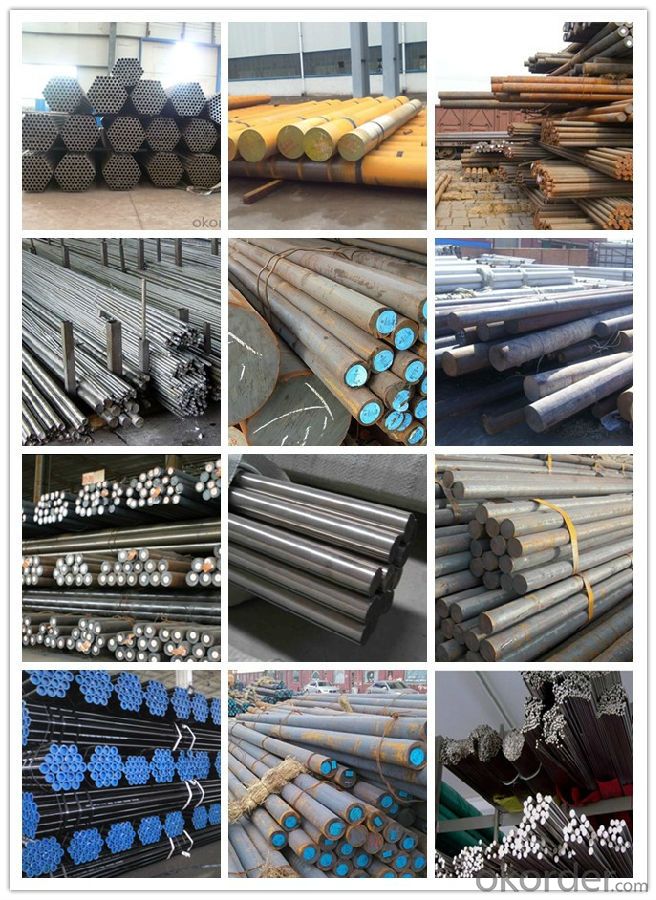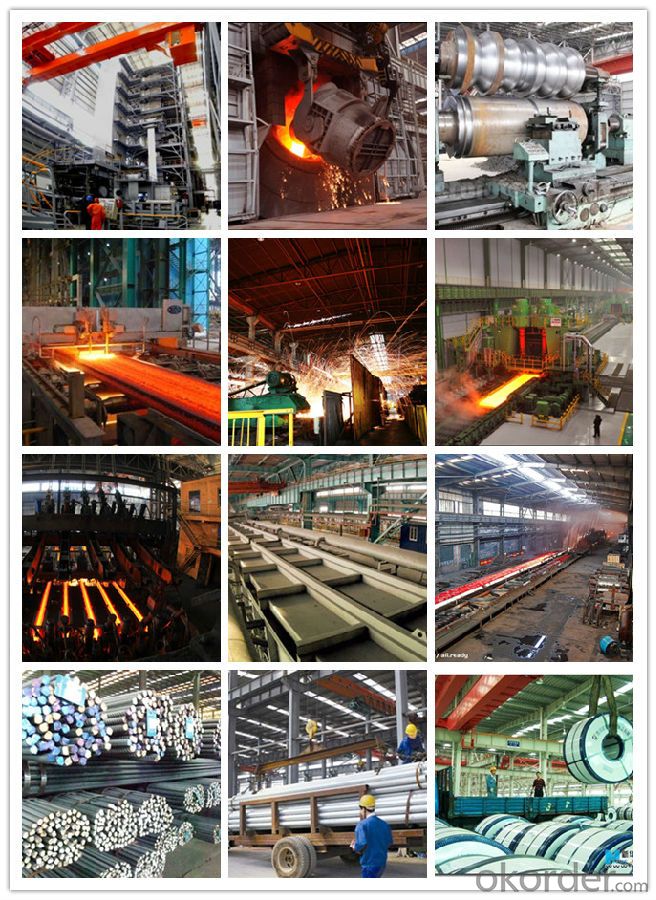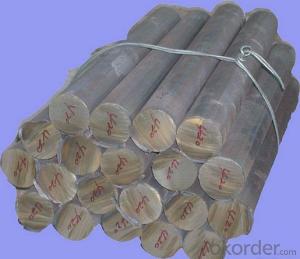Alloy Steel Bar 25MoCr4 Steel Round Bar
- Loading Port:
- China main port
- Payment Terms:
- TT OR LC
- Min Order Qty:
- 25 m.t.
- Supply Capability:
- 10000 m.t./month
OKorder Service Pledge
OKorder Financial Service
You Might Also Like
Item specifice
Designation by Standards
| Brand Name | LH No. | Mat. No. | DIN | EN | AISI |
| 25MOCR4 | 782 | 1.7325 | 25MoCr4 | - | 8625 |
Chemical Composition (in weight %)
| C | Si | Mn | Cr | Mo | Ni | V | W | Others |
| 0.25 | 0.30 | 0.70 | 0.50 | 0.50 | - | - | - | - |
Mechanical properties
1.7325, DIN 25MoCr4, AISI 8625 Mechanical properties,Our production completely according to the 1.7325, DIN 25MoCr4, AISI 8625 standards to meet the 1.7325, DIN 25MoCr4, AISI 8625 mechanical performance, can also according to the customer request, to meet the requirements of customers of 1.7325, DIN 25MoCr4, AISI 8625 mechanical properties.
Heat treatment
1.7325, DIN 25MoCr4, AISI 8625 Heat treatment,Our production completely according to the 1.7325, DIN 25MoCr4, AISI 8625 standards to meet the 1.7325, DIN 25MoCr4, AISI 8625 Heat treatment, can also according to the customer request, to meet the requirements of customers of 1.7325, DIN 25MoCr4, AISI 8625 Heat treatment.
Machining
1.7325, DIN 25MoCr4, AISI 8625 Machining,Our production completely according to the 1.7325, DIN 25MoCr4, AISI 8625 standards to meet the 1.7325, DIN 25MoCr4, AISI 8625 Machining, can also according to the customer request, to meet the requirements of customers of 1.7325, DIN 25MoCr4, AISI 8625 Machining.
Welding performance
1.7325, DIN 25MoCr4, AISI 8625 Welding performance,Our production completely according to the 1.7325, DIN 25MoCr4, AISI 8625 standards to meet the 1.7325, DIN 25MoCr4, AISI 8625 Welding performance, can also according to the customer request, to meet the requirements of customers of 1.7325, DIN 25MoCr4, AISI 8625 Welding performance.
Product show

Workshop show

- Q:Can special steel be used in the textile manufacturing industry?
- Yes, special steel can be used in the textile manufacturing industry. Special steel, such as stainless steel or high carbon steel, can be utilized in textile machinery parts, needles, or cutting tools due to their durability, corrosion resistance, and strength. These properties make special steel suitable for various processes involved in textile manufacturing, such as weaving, knitting, or cutting fabrics.
- Q:How is special steel used in the production of consumer goods?
- Special steel is used in the production of consumer goods due to its superior strength, durability, and corrosion resistance. It is commonly used in manufacturing appliances, cutlery, automotive components, and construction materials, ensuring the end-products meet high-quality standards and have a longer lifespan.
- Q:How does special steel perform in high-temperature oxidation with sulfur-containing atmospheres?
- Special steel performs well in high-temperature oxidation with sulfur-containing atmospheres due to its enhanced resistance to sulfur attack. The alloying elements present in special steel, such as chromium, molybdenum, and nickel, provide excellent protection against sulfur-induced corrosion and oxidation. This makes special steel an ideal choice for applications where exposure to high temperatures and sulfur-containing atmospheres is a concern.
- Q:What are the challenges in heat treating special steel?
- Some of the challenges in heat treating special steel include achieving the desired hardness and strength while maintaining dimensional stability, avoiding distortion or warping, controlling grain growth and microstructure, and ensuring proper heat distribution and uniformity throughout the material. Additionally, special steel alloys may have unique properties that require specific heat treatment techniques or specialized equipment, adding complexity to the process.
- Q:Does special steel require special machining techniques?
- Yes, special steel often requires special machining techniques due to its unique properties and characteristics. It is typically harder, tougher, and more heat resistant compared to regular steel, making it more challenging to cut, shape, and form. Special machining techniques such as using high-speed tools, specific tool geometries, and advanced coolant systems may be necessary to achieve desired results and maintain the integrity of the special steel.
- Q:What are the specific requirements for special steel used in the chemical industry?
- The specific requirements for special steel used in the chemical industry include corrosion resistance, high strength, and the ability to withstand extreme temperatures and pressures. Additionally, it should have excellent weldability and formability, as well as resistance to various chemicals and acids commonly found in chemical processes.
- Q:What are the different methods for improving the electrical conductivity of special steel?
- There are several methods for improving the electrical conductivity of special steel, including alloying, heat treatment, and surface modifications. Alloying involves adding elements like copper, nickel, or silver to the steel to enhance its conductivity. Heat treatment processes such as annealing or quenching can also improve conductivity by altering the microstructure of the steel. Additionally, surface modifications like electroplating or coating can be employed to enhance electrical conductivity.
- Q:Can special steel be used for musical instruments?
- Yes, special steel can be used for musical instruments. Steel alloys such as stainless steel or carbon steel are commonly used in the construction of certain musical instruments, particularly those requiring durability and resistance to corrosion. Examples include steel drums, certain percussion instruments, and parts of brass instruments like trumpets.
- Q:What are the different methods for improving the toughness of special steel?
- There are several methods that can be employed to enhance the toughness of special steel. One of the most effective techniques is through the process of alloying. By adding certain elements such as nickel, chromium, or molybdenum to the steel composition, the toughness can be significantly improved. These alloying elements help to increase the strength and resistance to cracking and fracture. Another method is through heat treatment processes. For instance, quenching and tempering can be employed to improve the toughness of the steel. Quenching involves rapidly cooling the steel from a high temperature to room temperature, which results in a hardened structure. Tempering then follows, where the steel is reheated to a specific temperature and then slowly cooled. This process helps to relieve internal stresses and increase the toughness of the steel. Furthermore, refining the microstructure of the steel can also enhance its toughness. Processes like grain refinement, which involves reducing the size of the grains in the steel, can lead to improved toughness. This is because smaller grains help to inhibit the propagation of cracks, making the steel more resistant to fracture. Lastly, special steel can undergo processes like shot peening or surface hardening to improve its toughness. Shot peening involves bombarding the surface of the steel with small metallic or ceramic particles, which induces compressive stresses and improves resistance to crack initiation. Surface hardening techniques such as carburizing or nitriding can create a hardened layer on the surface of the steel, increasing its toughness and wear resistance. In conclusion, the different methods for improving the toughness of special steel include alloying, heat treatment processes, microstructure refinement, and surface treatments. Each of these techniques can be tailored to the specific requirements of the steel to achieve the desired level of toughness.
- Q:What are the different nuclear grades of special steel?
- There are several nuclear grades of special steel, including but not limited to A508 Class 1, A533 Type B Class 1, A533 Type B Class 2, A508 Class 2, A533 Type C Class 1, A508 Class 3, and A533 Type C Class 2. These grades are specifically designed to meet the stringent requirements of nuclear power plant applications, ensuring high strength, resistance to radiation damage, and excellent fracture toughness.
1. Manufacturer Overview |
|
|---|---|
| Location | |
| Year Established | |
| Annual Output Value | |
| Main Markets | |
| Company Certifications | |
2. Manufacturer Certificates |
|
|---|---|
| a) Certification Name | |
| Range | |
| Reference | |
| Validity Period | |
3. Manufacturer Capability |
|
|---|---|
| a)Trade Capacity | |
| Nearest Port | |
| Export Percentage | |
| No.of Employees in Trade Department | |
| Language Spoken: | |
| b)Factory Information | |
| Factory Size: | |
| No. of Production Lines | |
| Contract Manufacturing | |
| Product Price Range | |
Send your message to us
Alloy Steel Bar 25MoCr4 Steel Round Bar
- Loading Port:
- China main port
- Payment Terms:
- TT OR LC
- Min Order Qty:
- 25 m.t.
- Supply Capability:
- 10000 m.t./month
OKorder Service Pledge
OKorder Financial Service
Similar products
New products
Hot products
Related keywords






























